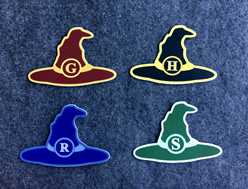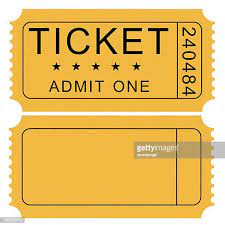|
Start

5 min
5 min
|
Organization moment
1.Greeting.
Ask
about the weather.
The
teacher sets the lesson objectives, letting students know what to
anticipate from the lesson.
-
It’s a nice day today, isn’t it? – Yes, it is.
-
How are you?
-
Who is on duty today?
-
What date is it today?
-
What is the weather today?
Warm-up
Changing
Songs
Last but not least, use popular songs in your
classes, ask your students to find the conditionals and change the
second part of the sentences, creating their own
alternatives.
Songs with Conditionals:
E.g. If I couldn’t be strong, tell me honestly,
would you still love me the same?
Student changes it into: If I couldn’t be strong,
tell me honestly, would you marry me?
Dividing into 3
groups with Sorting Hat : Write down students’ names on
slips of paper and draw them out of a hat.
|
Students' attention is drawn to the
lesson.
– I
am fine, thank you.
– I
am on duty today.
-
Today is the …
-
The weather is good. It is sunny and cold
Students discuss
the pictures in pairs.
Determines the topic and aim of the
lesson

|
Formative Assessment

Good job!
Assessment criteria
- Use
a growing range of vocabulary related to work
Descriptor:
- ask
them which
prepositions do they need
Total: 1 point
|
Pictures
Student’s book
https://www.youtube.com/watch?v=Fdcw4Mby2RI
|
|
Main part
30 min
8 min
|
Grammar training game “Jockeys and
Horses”
Some pupils (the Horses) stand at the blackboard
with their parts of conditionals. The rest of pupils (Jockeys) get
the parts of conditionals and look for the appropriate part for
their sentence. Then they read and translate their
sentences.
 Work in pairs Work in pairs
Ex: 7 P:25
present/revise conditionals
Read the theory box aloud.
Ask the students to work in pairs. Explain the
task and direct students’ attention to the
Grammar Reference
section.
Give students time to complete the task, then
elicit answers from pairs around the
class.
Ex: 8 P:25
Practice conditionals. Explain the task and then
give students time to complete it. Check students’ answers around
the class and elicit the types of conditionals.
Ex: 9 P:25
To practise conditionals using
personal examples. Explain the task and give students time to
complete it. Elicit answers from various students around the
class.
Conclusion So, my dear students,
let’s get together the facts about
all types of conditional sentences. (Pupils put the information
cards on the board under appropriate type of conditional
sentence).
I
can say that we worked hard. Your marks will be
good.
|
Keys: 1-d, 2-a, 3-e, 4-b, 5-c
Students work in pairs how do these sentences
differ in meaning
Answers:
Fist sentence: (if
= might) The economy might improve, and if it
does, unemployment will decrease.
Second sentence:
(unless = if not) Unemployment can never decrease unless
the economy improves first.
Students complete the sentences. Which type of
conditional is used in each one.
Answers:
1 wouldn’t have become
(type3)
2 won’t spend (type1)
3 wouldn’t have missed (type
3)
4 make (type0)
5 would stay (type2)
Students complete the
sentences.
Answers:
1.If everyone drove electric cars, the air
wouldn't be so polluted
2.If the government creates more jobs,
unemployment will decrease.
3.If immigration wasn't a possibility, people
wouldn't have as many job opportunitie
|
Descriptor:
-
choose the correct item
Total: 1 point
Descriptor:
- compare these VS points of
Total: 1 point
Descriptor:
- complete the sentences
Total: 1 point
Differentiation –
how do you plan to give more support? How do you plan to challenge
fast finishers?
s
|
presentation
https://www.youtube.com/watch?v=eqyv9DOTMM0
Cards
Worksheets
|









